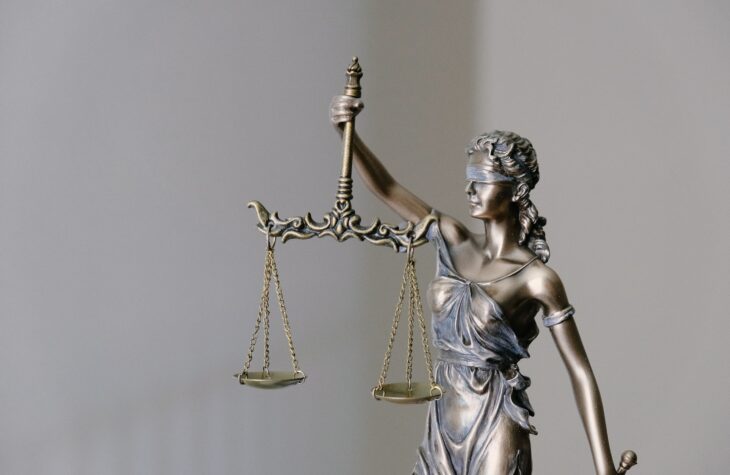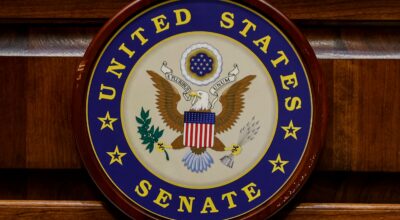
Critical Race Theorists: All Systems Are Biased, Except For Ours
Originally appeared in the Federalist.
We’ve long seen advocates of critical race theory judge others according to standards they do not apply to themselves. Black Lives Matter co-founder Patrisse Cullors, for example, bought million-dollar homes in predominantly white neighborhoods while decrying the inequalities of capitalism and claiming to be a “trained Marxist.” A recent attempt by Irami Osei-Frimpong to defend critical race theory (CRT) shows this hypocrisy is baked directly into the heart of the theory itself.
Osei-Frimpong’s main argument is that the law is used to serve the interests of those who wield it. He further claims judges cherry-pick which facts of each case to pay attention to, and which legal precedents to apply to those cherry-picked facts. They do this to arrive at a verdict in the service of their own interests or the interests of their institutions.
As such, Osei-Frimpong concludes, we have a sham legal system that only serves one particular set of interests — those of the powerful, at the expense of the weak. This is why Osei-Frimpong says, “formal equality exacerbates inequalities in realized power by making the poor more vulnerable to being tools of the wills of the wealthy.”
CRT: Systems Are Biased Except for Ours
CRT itself also takes a cynical view of the law, particularly the 1964 Civil Rights Act, and assumes that by doing so critical race theorists will be able to see through the facade of legal impartiality and understand how social, political, and legal institutions “reproduce systems of racial stratification.” Osei-Frimpong states the underpinnings of this argument clearly: “the formal method, and its promise to be able to handle all content, is itself an historical artifact that was contrived to cover decisions about how to include or exclude relevant factors in family, social, political, and legal judgments.”
In other words, the supposed neutrality of legal institutions, judges, prosecutors, and defense attorneys merely hides the fact that biases and selfish interests lie at the heart of legal judgments. That is an interesting claim, but he claims it as an objective fact. That’s exactly why his argument goes off the rails.
His claim breaks down at one simple question. If the Enlightenment-era methods (such as republican governance and equality under law) are incapable of neutrality, objectivity, and honest brokering (because of the interests and biases of the people and institutions involved), why should we believe the methods of critical race theorists are any more capable of neutrality, objectivity, or honest brokering? I can think of no reason CRT disciples would have access to objectivity in a way that those who subscribe to Enlightenment paradigms (including various offshoots like modern conservatism) do not.
Further, if CRT is correct that practitioners of Enlightenment thought cherry-pick which facts to use at the behest of particular interests, what stops us from believing critical race theorists do the same thing? Why should we trust that they are considering the facts objectively, instead of cherry-picking as a way of protecting and advancing their own interests?
This Contradiction Is Why We Have Our Legal System
If those in the Enlightenment’s liberal tradition all succumb to their biases, why would we think critical race theorists would not do the same? What is it about CRT that frees its proponents from the grip of their own interests and biases? It is clearly in their best interests to get us all to believe what they say about the law.
It is also in the best interests of critical race theorists to make everyone accept wholesale that CRT will finally let us see the law for what it really is. But this suggests critical race theorists think their theory can overcome human nature, while the other theory does not. Such an assumption is logically flawed.
CRT’s cynical approach to legal systems attempts to cheaply dissolve existing institutions and legal infrastructure. But to be logically consistent, it would also have to dissolve its own vision of a CRT-inspired legal system.
If the interests and biases of contemporary institutions render them incapable of making objective judgments, then the interests and biases of critical race theorists do the same. Thus, when critical race theorists claim it’s an objective fact that the law is not neutral, we can apply their own reasoning to their own claim. Then, we can dismiss it on the grounds that it was produced by methods created to serve the interests of critical race theorists.
The only way for CRT to avoid being invalidated by the same reasoning it uses to invalidate our institutions is for CRT to exempt itself from its own reasoning without any logical or principled stated reason for doing so. CRT has to say “we can invalidate your methods by looking at your biases and interests, but you can’t invalidate our methods by looking at our biases and interests.”
This amounts to special pleading, wherein one cites something as an exception to a general or universal principle, without justifying the special exception. It is the application of a double standard.
The entire point of neutral methods is to, to the degree possible, reduce the effect of unfair biases. David Quinn offers an excellent example of how neutral methods are effective in reducing the influence of bias. Quinn showed that “when teachers used a grading rubric with specific criteria” as opposed to using “a general grade-level scale,” as a result “racial bias all but disappeared.”
Although education is not law, the principle at work here is the same. The way to reduce the influence of self-interest and bias is to demand rigorous implementation of neutral methods.
That is what jurisprudential institutions inspired by the Enlightenment do. It’s also why contemporary methods of jurisprudence, not CRT, are best for dealing with biases and human nature.




